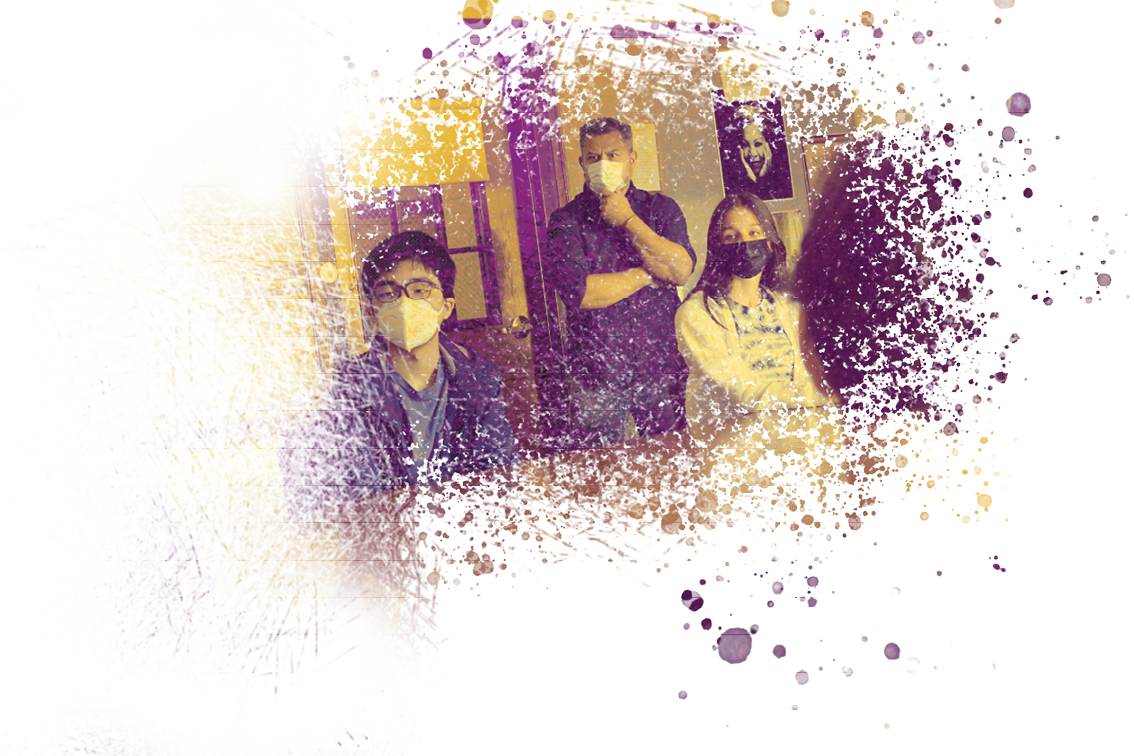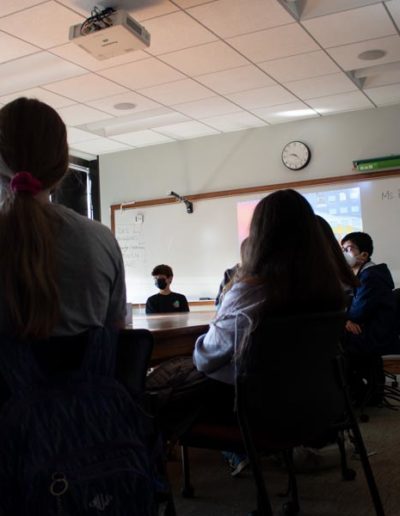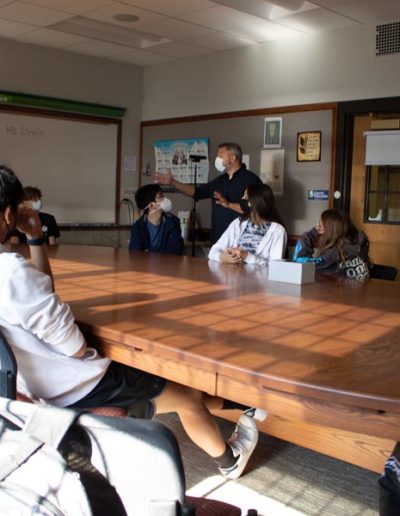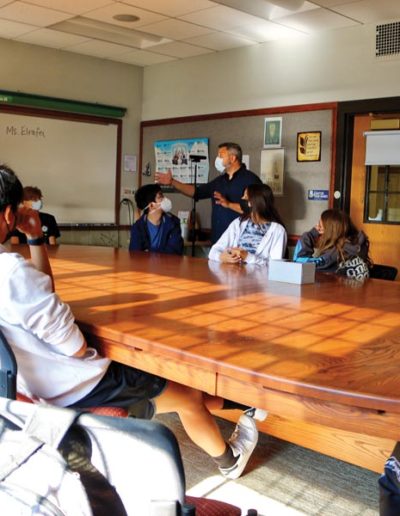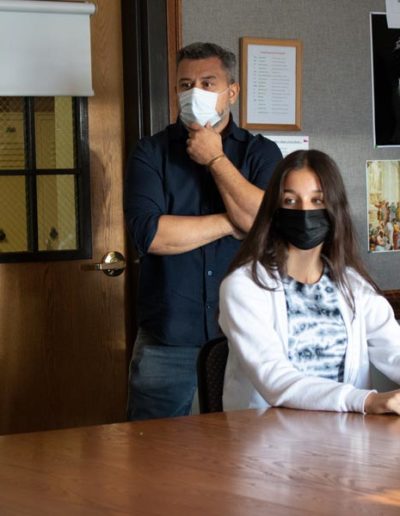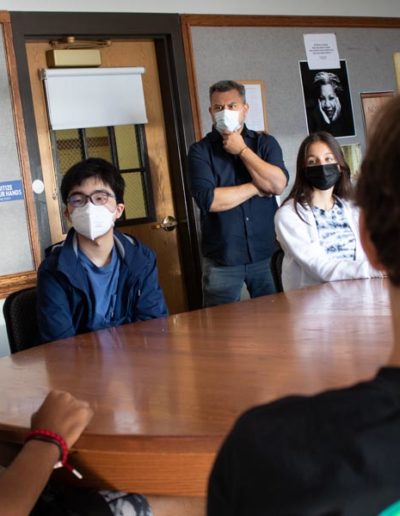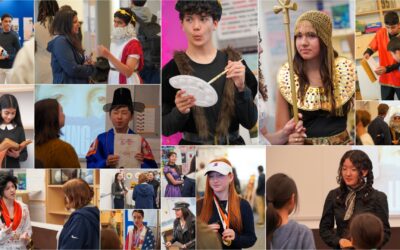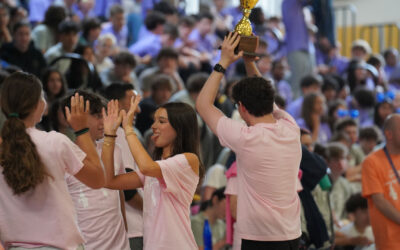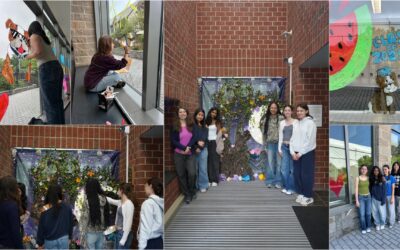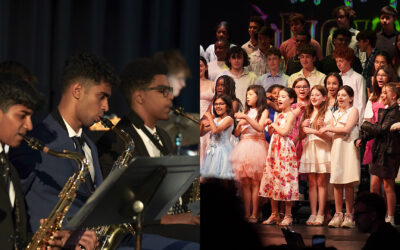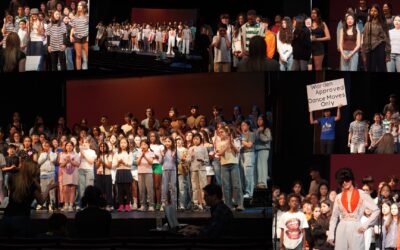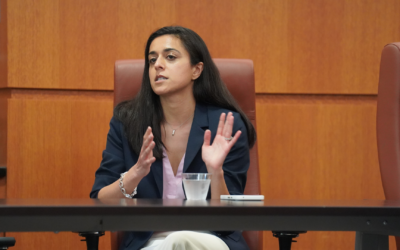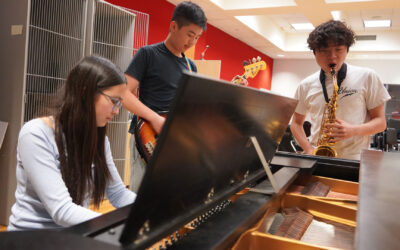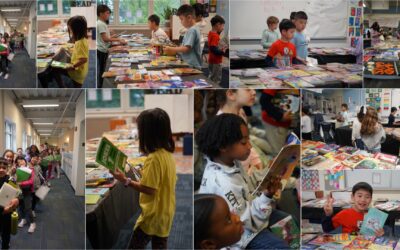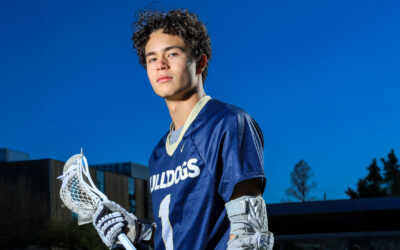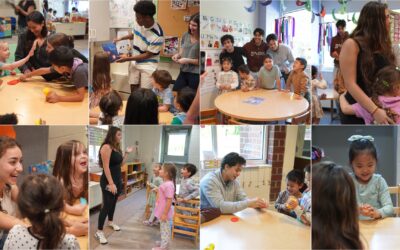The genesis of “Beyond Empire” comes from a personal place. As a first-generation American of Trinidadian immigrants, who came to the US amidst Trinidad’s independence from the UK, Stephen Bailey finds that it is imperative to trace these stories. The central questions of the course ask, “What is it to move beyond empire? How do people understand themselves in a new context? How do you reacquire or reinvent yourself?” What underlies the curriculum is the belief that through investing in the literary worlds of other cultures, students can be world scholars and compassionate readers.
Stephen emphasizes reading a breadth of literary styles like poetry, fiction, non-fiction, etc. to think critically about how language is used. With challenging material from authors and playwrights like Tayeb Salih and Lynn Nottage, Stephen asks for courage from both his students and himself; the courage to ask hard questions and to listen to different voices and opinions. “That is where true inquiry begins!”
8th Grade “Living Wax Museum” Brings History to Life
The 8th grade Living Wax Museum, facilitated by Grade 8 English Department Faculty Mr. Gautham Akula and Ms. Amanda Burnett, showcased historical figures selected by our students. Each student dressed the part and gave a well-rehearsed presentation to parents,...
MAGIC 2025 Highlights
D-E’s school spirit was on full display recently at the Myrna B. Sherman Gym, where MAGIC happened! Rain kept the annual intramural competition indoors, but it didn’t dampen the sense of community beaming from the rafters. “Spirited, cheerful D-E is my favorite...
Art in Action Aims to Inspire and Have an Impact
In an example of cross-divisional collaboration that beautifully illustrates imagination, the Art in Action student organization, advised by Rachel Brusky of the US/MS Art & Design Department, repurposed a tree they created as part of the set design of the HOPE...
Cabaret Night & All-School Chorus/Drumming Concerts an Inspiring Performance Double-Header!
This week, D-E Performing Arts hosted an inspiring double-header of live musical performances! During the Cabaret Night Concert on Monday, May 19, our Jazz Workshop and Stage Band ensembles, directed by Music Director Rob DeBellis P’18,’15 and accompanied by guest...
All-School Chorus & Drumming Concert Tomorrow, May 20
Our chorus students from all divisions have been working hard preparing for the All-School Chorus & Drumming Concert, on Tuesday, May 20, and starting at 7:00 PM in Schenck Auditorium. Middle / Upper School Music Teacher Ken Kacmar P ’26, ’28 said this is the...
Women in Finance Hosts a D-E Alumna, J.P. Morgan Banker
D-E’s Women in Finance student organization, facilitated by Faculty Advisor and Chief Financial Officer Angela Artale, recently hosted alumna Neesha Khanna ’09, a private banker at J.P. Morgan, for a conversation on building a career in finance. Ms. Khanna answered...
Cabaret Night 2025 Performance on Monday, May 19!
Get ready for one of the final concerts of the school year! Our Upper School student jazz artists have been busy rehearsing and can’t wait to perform Cabaret Night. This annual concert, featuring the Stage Band & Jazz Workshop ensembles and guest artist Marty...
Lower School Book Sale Gives Third Graders a Lesson in ‘Making a Difference’
Third Graders Making a Difference (TGMD), a service-based initiative founded by Third Grade Teacher Michelle Sussmann and co-led by Third Grade Teacher Rachel Brainin, culminated with a book sale this week, consisting of gently used children’s books donated by members of the D-E community. Proceeds from the book sale will benefit a charity selected by third graders. Students participated in sorting and preparing the donated books for sale. The Lower School was then invited to attend the fundraiser, where each book could be purchased for $5 or less. “It was fun planning for it,” exclaimed Zein A. ’34 of the event.
“This TGMD project truly puts all aspects of making a difference into the third graders’ hands,” said Ms. Sussmann. “They have learned so much about the power of giving… how important it is and how good it makes us feel!” When asked why it’s important to “make a difference,” Caleb C. ’34 remarked, “You’re helping people less fortunate than you.”
The project is tied to skills learned in students’ persuasive writing unit, for which they are asked to write a persuasive speech to convince their peers that a particular charity should receive the profits from the book sale. Alanna M. ’34 said she discovered through TGMD that anyone of any age can make a difference in the world, sharing: “Why wait until you’re older when you can do something now.” We’re so proud of our third graders for paying it forward!
Achille (“Ash”) Pompidou ‘25 Scores His 100th Goal for D-E Boys Lacrosse!
WOW & CHEERS to Achille (“Ash”) Pompidou ’25, who scored his 100th goal for D-E Boys Varsity Lacrosse this week during a match against West Orange High School! Ash’s five goals and four assists helped the team secure an 18-11 victory—D-E’s fourth win of the...
AP Psychology Students Test Young Minds
A few of D-E’s oldest students (seniors) collaborated with some of our youngest (Preschool 4) during a Developmental Psychology unit for which AP Psychology students learned about Jean Piaget’s theory of cognitive development. “Part of that theory is that children at...

